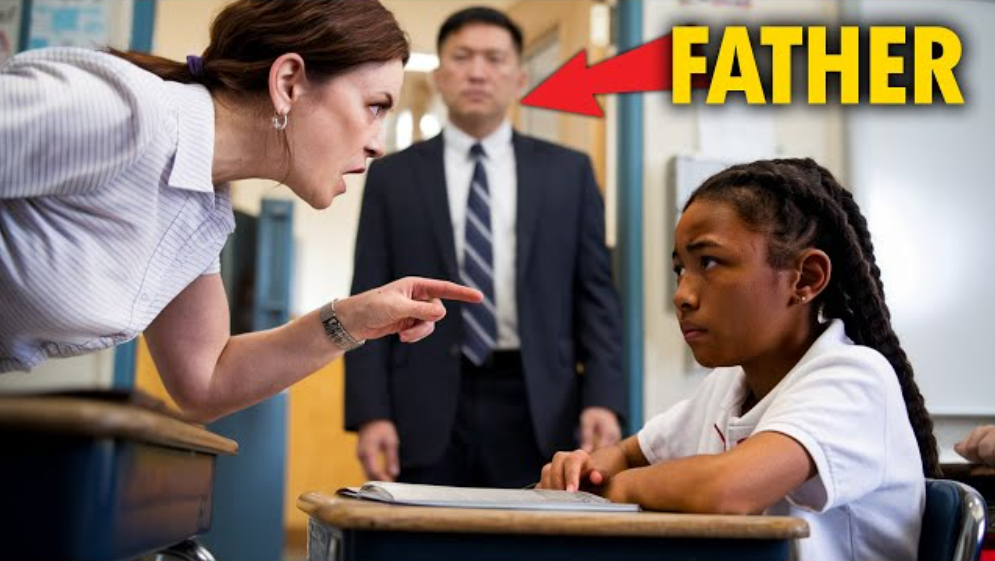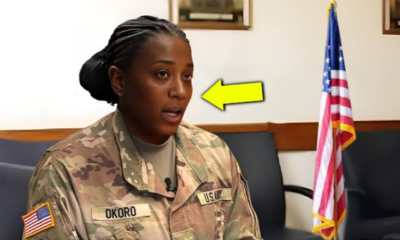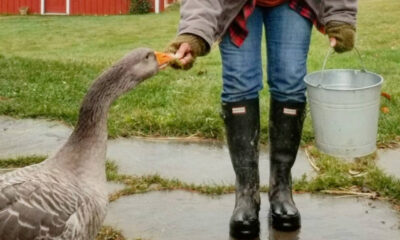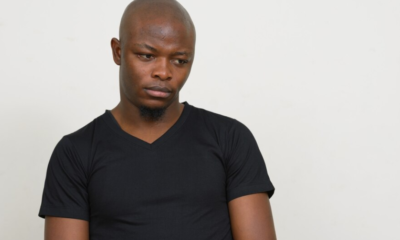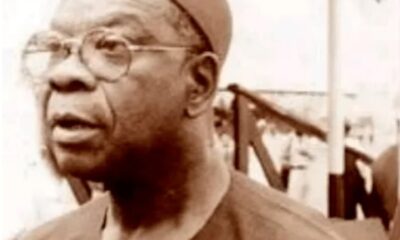By Chuks Iloegbunam
The first shots shattered the peace of the night at the Abeokuta Garrison of the Nigerian Army a few minutes after midnight on July 29, 1966. Three casualties lay instantly dead in the persons of Lieutenant Colonel Gabriel Okonweze, the Garrison Commander, Major John Obienu, Commander of the 2nd Reece Squadron, and Lieutenant E. B. Orok, also of the Reece Squadron. It was the beginning of the much-touted revenge coup of Northern Nigerian army officers and men against the regime of Major General Johnson Thomas Umunnakwe Aguiyi-Ironsi. By August 1, when Lieutenant Colonel Yakubu Gowon assumed power in Lagos as Nigeria’s second military Head of State, the bullet ridden bodies of both Ironsi and his host, Lieutenant Colonel Francis Adekunle Fajuyi, the military Governor of Western Nigeria, lay buried in shallow graves at Iwo, outside Ibadan. “Within three days of the July outbreak, every Igbo soldier serving in the army outside the East was dead, imprisoned or fleeing eastward for his life”, observed Professor Ruth First in The Barrel of a Gun: The Politics of Coups d’Etat in Africa [Allen Lane The Penguin Press, London, 1970, p317…Click Here To Continue Reading>> …Click Here To Continue Reading>>
But Africa’s bloodiest coup did not stop at that stage, despite the shooting to death of 42 officers and over 130 other ranks, who were overwhelmingly Igbo. The killing sprees and ever-expanding killing fields spread like wild fire across most of the country. There were three phases to the coup – the Araba/Aware massacres in northern Nigeria pre-July that called for northern secession, the July Army bloodbath, and the ethnic cleansing that went on for months after Ironsi had been assassinated and his regime toppled.The maelstrom prompted Colonel Gowon into making a radio broadcast on September 29, 1966. This was the kernel of what he said: “You all know that since the end of July, God in his power has entrusted the responsibility of this great country of ours into the hands of yet another Northerner. I receive complaints daily that up till now Easterners living in the North are being killed and molested, and their property looted. I am very unhappy about this. We should put a stop to it. It appears that it is going beyond reason and is now at a point of recklessness and irresponsibility.”
But Gowon’s salutary intervention changed nothing, as the massacres continued unabated. Northern soldiers and civilians went into towns, fished out Easterners and flattened them either with rapid gunfire or with violent machete blows, leaving their properties looted or torched. According to the Massacre of Ndigbo in 1966: Report of the Justice G. C. M. Onyiuke Tribunal, [Tollbrook Limited, Ikeja, Lagos] “…between 45,000 and 50,000 civilians of former Eastern Nigeria were killed in Northern Nigeria and other parts of Nigeria from 29th May 1966 to December 1967 and although it is not strictly within its terms of reference the Tribunal estimates that not less than 1,627,743 Easterners fled back to Eastern Nigeria as a result of the 1966 pogrom.”
This is contemporary Nigerian history, only 50 years old. But when experts like Dr. Reuben Abati and Professor Jonah Elaigwu write about it, they lose all sense of numeracy and statistical acuity, and glibly state that the July 29, 1966 counter-coup cost “many” Igbo lives. Well, the truth is that the July 29 counter-coup appears to be the bloodiest in the world’s recorded history because the casualty figures it posted far outstrip those registered in decided bloody coups like the Glorious Revolution of 1688 in which King James II of England was overthrown by an invading army led by William III of Orange-Nassau; the 18 Brumaire of 1799coup in which General Napoleon Bonaparte overthrew the French Directory on November 9, 1799; the Wuchang Uprising of 1911 that overthrew the Qing Dynasty and led to the establishment of the Republic of China; the Bolsheviks October Revolution of 1917 that led to the creation of the Soviet Union; and the Iraqi coup d’état of 1936, the first among Arab countries. Each of these coups/revolutions led to war. But none of them managed anything near the sea of blood occasioned by July 29, 1966.
Giving their interest in posting photographs and videos on the Internet by Instagram and Snapchat, and advertising mostly poor language on Facebook and other such portals, today’s Nigerian youths may know next to nothing about what led to the catastrophe of July 29. But the details follow here for those of them interested in learning. The problem sat rigidly on the superficiality of Nigeria, a geographical expression contrived by colonialist Britain. At Independence in 1960, the country operated a federal system of government with three powerful regions that didn’t take dictation from Lagos, the nation’s capital. A fourth region, the Midwest, with capital in Benin City, was created in June 1963. But destroying the very fabric of the artificial political entity were tribalism and corruption, corruption which by today’s standards, would seem like cloistered nuns delightfully engaging in a game of Ping-Pong!
There were the 1960 and 1964-1965uprisings in the Tiv country of the Middle Belt, and fractious elections in Western Nigeria in 1964 and 1965. There was the highly controversial national census exercise of 1963, and there was the military action of Isaac Boro’s Niger Delta Volunteer Force. Then, the military moved in on January 15, 1966, having contracted the germ of the idea of military putsches running riot across the world. In Algeria, for instance,Colonel Houari Boumediene and Ahmed Ben Bella overthrew Benyoucef Benkhedda on July 3, 1962. Three years later, on June 19, 1965,Boumedienne overthrew Ben Bella. More: In Argentina, General Eduardo Lonardi overthrew President Juan Domingo Peron on September 16, 1955. On March 29, 1962, General Raul Pogi overthrew President Arturo Frondizi.In Brazil on March 31, 1964, Humberto de Alencar Castelo Branco overthrew João Goulart to set up a 21-year-long dictatorship. In Indonesia General Suharto overthrew President Sukarno on September 30, 1965.
Inside Africa itself, coups were also trending. Colonel Gamal Abdel Nasser had overthrown Muhammad Naguib as far back as February 27, 1954. The first coup in West Africa was on January 13, 1963, when Etiene Eyadema overthrew Sylvanus Olympio. Colonel Joseph (later Mobutu SeseSeko) toppled Prime Minister Patrice Lumumba on September 14, 1960 and “neutralized” all political parties in Congo-Kinshasa. In neighbouring Benin Republic, Christophe Soglo overthrew Hubert Maga on October 28, 1963.Soglo carried out another coup on November 27, 1965, toppling Sourou-Migan Apithy. Both coups happened when the country still bore the name of Dahomey.
On New Year’s Day of 1966, Colonel Jean-Bedel Bokassa overthrew his cousin, President David Dacko in Central Africa Republic. Two days later, Lieutenant Colonel Sangoulé Lamizana overthrew President Maurice Yaméogo in Upper Volta, which was renamed Burkina Faso in 1984 by Marxist revolutionary Captain Thomas Sankara.
But there was a difference between the rash of coups that occurred elsewhere and the one of January 15, 1966 in Nigeria. The Nigerian coup took an immediate ethnic colouration, and for reasons that were all too obvious. Of the five Majors that formed the innermost circle of the plotters, four were Igbo – Patrick Chukwuma Kaduna Nzeogwu, Emmanuel Arinze Ifeajuna, Donatus Okafor, and Chris Anuforo. But there was also among them Major Adewale Ademoyega, a Yoruba. Then, there was also the more disturbing fact that most of the coup’s casualties were non-Igbo, like Prime Minister Sir Abubakar TafawaBalewa, Northern Premier Sir Ahmadu Bello, Western Premier Chief Samuel Akintola, and Federal Finance Minister Chief Festus Okotie-Eboh. No Igbo politician had lost his life in the bloody action.
Further, in executing the coup, the military had turned against itself in the killings of the following Northern military officers: Brigadier Zakariya Maimalari (Commander 2 Brigade), Colonel Kur Mohammed (Chief of Staff, Army Headquarters), Lieutenant Colonel James Yakubu Pam (Adjutant-General), and Lieutenant Colonel Lieutenant Colonel AbogoLargema (Commander 4th Battalion, Ibadan). Two Yoruba officers were also victims:Brigadier Samuel Ademulegun (Commander 1 Brigade), and his deputy, Colonel Ralph Sodeinde. The coup was, in effect, as bloody as they come. Its very nature fanned the fiction that it was an Igbo coup.
On the immediate term, the charge of an Igbo coup was understandable. What would the Igbo have said and done if things had happened differently and the coup had been perpetrated by say, Majors Hassan Usman Katsina, Murtala Muhammed, Joe Akahan, Mohammed Shuwaand Abba Kyari, and the victims been, say, Dr. Nnamdi Azikiwe, Dr. Michael Okpara, General Aguiyi-Ironsi, Colonel Conrad Nwawo and Lieutenant Colonels Michael Ivenso, Michael Okwechime and Ime Imo? They would have, of course, cried blue murder and almost certainly plotted countermeasures.
But, the true situation was clear in mere weeks and months. The coup had not been an Igbo coup for various reasons. Its primary objective was to replace Prime Minister Balewa with Chief Obafemi Awolowo, the Yoruba Leader of Opposition in the Federal Parliament. Why would Ndigbo carry out a coup in order to install a Yoruba leadership? Three of the leaders of the January 15 action testified verbally and in written form that they had marked Chief Awolowo to head a government of their own creation. This was how Major Ifeajuna rationalized their decision in his memoirs, which has remained embarrassingly unpublished for 50 years: “Chief Awolowo launched forth his party on a platform of tribalism, and for his parochial and partisan approach to national issues, he got deserving blame. But probably in the later Awolowo of after the 1959 Federal Election that began the fiasco, our people saw for a second time an image of honesty, courage and discipline. Awolowo refused to betray those who followed him; rather it was some of them that betrayed him. In the face of difficulties and personal tragedy following on the declaration of a state of emergency in Western Nigeria, his treason trial, and the death of his first son, he showed courage and firmness of belief that truly is rare. In time he came to win the respect and admiration of even his greatest detractors, and what was more, he came to represent a rallying point for the young and the intellectual, for all that sought progress and nationhood for our country.”

There were other reasons that made it plain that it was not an Igbo coup. The Igbo General Aguiyi-Ironsi crushed January 15. But, instead of being credited with the feat, Gowon allowed himself to be proclaimed the crusher of the coup, a role he hadn’t played at all. Not just that, Lieutenant Colonel Arthur Chinyelu Unegbe, the Quartermaster of the Army had been felled by the coupists of January 15. He was full-blooded Igbo, from Ozubulu in today’s Anambra State. But it served the interest of the counter-coupists to deny this and lie that Chinyelu was from the “Midwest” Region.
A further consideration: On the morning of January 15, 1966, there were six Igbo Lieutenant Colonels. None participated in the coup. On that morning, there were 45 Majors in the Nigerian Army. About 24 of them were Igbo. This means that, at the very least, 18 Igbo Majors had nothing to do with the coup. On that morning, the General Officer Commanding was Igbo. The Quartermaster General was Igbo. The Commander of the 2nd Battalion in Lagos was Igbo. His 2ic was Igbo. The Brigade Major was Igbo. The Federal Guards Commander was Igbo. The Staff Officer “A” Branch at Army Headquarters was Igbo. If all these had fixed the coup, could it have failed?
But the engineers of July 29 did not want to know. People like Mallam Adamu Ciroma, then the Editor of the Northern Government-owned New Nigerian newspaper led the campaign in portraying the January action as an Igbo coup aimed at Igbo domination of Nigeria.These champions of the legend of the Igbo coup had a point, of course. But, as already pointed out above, it was a blunt one, except that in the excitement and tenseness of the season, reason was on leave. First insidiously, but later openly and brazenly, they started and continued to fan the embers of hatred that resulted in July 29 and the pogroms that preceded and followed it.
Biafran Major-General Alexander Madiebo captured the virulent propaganda thus: “By the end of April 1966, the press and radio of the North had joined in the hostile campaign against the South. These mass information media were then fully employed in preparing the people’s mind for the coming counter-coup. Starting from the beginning of May, 1966, Radio Kaduna played every day for three weeks, recorded speeches of late Sir Abubakar (Tafawa Balewa) and Sir Ahmadu (Bello). These political campaign speeches were carefully selected to arouse tribal feelings, passion and hatred against the people of the South. While Radio networks blared the speeches, the official Government daily newspaper New Nigerian, carried daily for some time serialized articles on the Islamic war of Conquest or Jihad, both in English and local vernaculars.” (The Nigerian Revolution and the Biafran War, Fourth Dimension Publishers, Enugu, p. 35.)
The anti-South or, more appropriately, the anti-Igbo rhetoric and plots moved on three fronts. Northern journalists and elites trumpeted the propaganda. Northern politicians, included Mallam Aminu Kano, galvanized the mobs while Gowon, the Army Chief, superintended the military angle. It is often said that Lieutenant Colonel Murtala Mohammed led the counter-coup. But this was only because he was the visible face. The contention here is that Gowon was the actual leader of July 29. He wisely acted surreptitiously because of the position he held and because he was under surveillance. Had he not been party to the counter coup, it would have floundered in its early stages, or even nipped in the bud. READ FULL STORY HERE>>>CLICK HERE TO CONTINUE READING>>>

There are many reasons for this conclusion. From the start of the action on July 29, Gowon was incommunicado until August 1, 1966, when he surfaced at the Ikeja Cantonment to be declared Head of State by anAir Force Sergeant named Paul Dickson. Contrast his curious disappearance on July 29, 1966 to January 15 when, as an officer without command who had arrived the country only two days earlier, he joined the Major Hans Anagho team appointed by General Ironsi to go in pursuit of the coup makers. Again, when Government House, Ibadan, was under siege, Gowon had a telling telephone conversation in which Major Theophilus Danjuma told him that he was on the verge of leading his troops to storm the building and seize Ironsi and Fajuyi. According to Danjuma’s authorized biography, the conversation continued thus:
Gowon: Can you do it?
Danjuma: We’ve got the house surrounded and sealed off, Sir. We can do it.
Gowon: Alright. But please make sure there is no bloodshed. (Danjuma: The Making of a General, by Lindsay Barrett. Fourth Dimension Publishers, Enugu, 1980.pp 52-53.)
Could Gowon’s acquiescence to high treason in this dialogue be the spontaneous reaction of someone unaware of the details of what was going on? Is it not more rationale to believe that Danjuma had initiated the telephone conversation,in order to give a “sitrep” to the superior officer whose orders he was carrying out? After all, Lieutenant Colonel Hillary Njoku has argued that Danjuma was not qualified to be a part of on Ironsi’s national tour.
“In accordance with staff procedure, Lt-Col. Jack Gowon as the Chief of Staff, Army, was the right man, not Major Theophilus Danjuma, to accompany the Supremo on military matters. If for any reason he was absent, the next man to him should have gone with the Supreme Commander. In that case the General Staff Officer Grade One, Lieutenant Colonel P. Anwunah, or, as it was an administrative tour, the Adjutant-General should have joined or at least represented the Army. Theophilus Y. Danjuma was a major and deputy to Lieutenant Colonel M. Ivenso who was the Adjutant General of the Army…Protocol wise, detailing a Grade Two Staff Officer to represent the Army on a country-wide tour of the Head of State was a capital insult to the person and office of the Head of State.” (A Tragedy Without Heroes: The Nigeria-Biafra War, Fourth Dimension Publishers, Enugu. pp 86-87.)
But Gowon made the anomalous posting, all the same. Max Siollun was, therefore, wrong to state in his essay entitled The Northern Counter-Coup Of 1966 – The Full Story that, “Ironsi had with great courage entrusted his personal security to northern soldiers (including Major Yakubu Danjuma, Lieutenants William Walbe, Titus Numan and Sani Bello). One of his ADCs was the younger brother of Lt-Col James Pam (who had been murdered during the January coup). By surrounding himself with northern soldiers, Ironsi sealed his own fate.”(Seewww.nigerialinks.com>articles>Siollun).
Ironsi’s fate was sealed because he came from an ethnic group not ordained by God for perpetual leadership of Nigeria. Ironsi had not placed Danjuma in the ranks of his personal guards. Gowon did. Ironsi had four ADCs: Timothy Pam (Police), Dennis Okujagu (Navy), Andrew Nwankwo (Air Force) and Sani Bello (Army. None of them was party to the execution ofJuly 29. As a matter of fact, Bello and Nwankwo were among those scourged by Danjuma and his men, and led to the Iwo execution ground with their hands tied behind their backs. Perhaps Ironsi would have been wise if his personal security were in the hands of his Umuahia kinsmen. But Gowon had established a Federal Guards Battalion composed entirely of his Angas people. Yet, his removal from office was swift and ignominious.
Thus, as July 29 dawned, Danjuma who was advantageously positioned had troops from the 4th Battalion in Ibadan given to him by its Commander, Lieutenant Colonel Akahan. Those were the troops he used to replace Ironsi’s regular guards. They took Ironsi and Fajuyi and subjected them to unimaginable torture, after which he gave “whispered instructions” to those that led the duo, all blood and gore, to their untimely deaths at Iwo. The junior officers who led Ironsi and Fajuyi to their Golgotha included Lieutenants GarbaPaiko, GarbaDuba, William Walbe, Titus Numan, and Jeremiah Useni,as well as some non-commissioned officers and many recruits.
The counter-coup spread to all parts of the country except the East where Lieutenant Colonel Chukwuemeka Odumegwu-Ojukwu was Military Governor and Lieutenant Colonel Eze Ogunewe the 1st Battalion Commander. In Kaduna they shot Lieutenant Colonel Israel Okoro, the Commander of the 3rd Battalion. In Lagos they shot Major T. E. Nzegwu (not to be confused with Nzeogwu) of the Supreme Headquarters. Major Chris Anuforo was tortured to death. Major Don Okafor was buried alive. They killed Major B. Nnamani of the 2nd Battalion. The assassinated Major J. O. C. Ihedigbo. The killed Major Ekanem of the 1st Provost Company on Carter Bridge. They killed Major P. C. Obi of the Nigerian Air Force. They killed Major O. U. Isong of the 1st Reece Squadron, Kaduna. They killed Major C. C. Emelifonwu of the 1st Brigade Headquarters. They killed Major A. D. Ogunro of the Nigerian Military Training College (NMTC).
They seized Captain P. C. O. Okoye who was on his way to an overseas course near the Ikeja Airport. The Captain was”tied to an iron cross, beaten and left to die an agonizing death in the guardroom.” They also massacred Captains Iloputaife (MBE), I. U. Idika, A. O. Akpet, L. C. Dilibe, J. I. Chukwueke, J. U. Egere, T. O. Iweanya, H. A. Auna, S. E. Maduabum, G. N. E. Ugoala, and R. I. Agbazue in various military formations across the country. And they ended the lives of 15 Lieutenants all told. As for Warrant Officers, Sergeants, Corporals, Lance Corporals and Privates, about 130 of them paid the supreme price of July 29.
“The original intention of the July 29 counter coup leaders was to seize the reigns of government and then announce the secession of the Northern Region from the rest of the country. This was in line with the general mood of the people of the North whose clarion call during the May 29 disturbances was Araba or Aware (Hausa word for ‘secede’).” So wrote Ahmadu Kurfi in The Nigerian General Elections 1959 and 1979 and the aftermath, (Macmillan Nigerian Publishers Limited, Lagos, 1983; pp38-39.) Again, “Northern civilians and other ranks in the Army kept continuous pressure on us to avenge what seemed more and more to them to have been an anti-Northern coup.” So wrote Major General Joseph in Revolution In Nigeria: Another View, Africa Books Limited, London, 1980; p 60.

Well, vengeance was wreaked to the extreme, majority of the victims being clearly innocent of any crimes or offences. According to the Onyiuke Report (page 103), The May (1966) riots affected mainly the Hausa/Fulani areas of Northern Nigeria. It did not affect the Bornu Emirate to the North-East, the area commonly called the Middle Belt (comprising Benue province with Makurdi as its principal town, Plateau province with Jos as its principal town, Ilorin, and Kabba provinces. The Ilorin and Kabba provinces are mainly inhabited by the Yoruba, the Benue Province by the Tiv and Idomas and other tribes. The Bornu Emirate is mainly dominated by the Kanuri whose head Chief, the Shehu of Bornu is based in Bornu…
“The pogrom spread to all parts of northern Nigeria between September and October 1966. The main instrument of spreading the pogrom was the Federal Army and Police and thugs organized on a fairly high level to smother the susceptibilities of some of the local chiefs who opposed it. The local inhabitants especially the ex-politicians caught the fever, and horror and disaster spread. The rot was complete.”
After Ironsi was toppled and assassinated, and after “God in his power (had) entrusted the responsibility of this great country of ours into the hands of yet another Northerner,” the Republic of Northern Nigeria was not declared. Why? Despite Gowon’s curious denial to this day that he was going to announce secession on August 1, 1966, the fact is that the move to secede was thwarted by Western powers. According to the minutes of the Cabinet meeting of August 2, 1966 released by the British Government after the mandatory 35-year period of moratorium, and deposited and marked as CAB/128/41 kept at the British Public Records Office at Kew Gardens, London, “The Commonwealth Secretary (The Rt. Hon. Arthur Bottomley, MP) said that there had been a further mutiny in Nigeria and that Major General Ironsi, the Head of State, had been kidnapped and possibly killed. A L-Col Yakubu Gowon, who was Hausa from the Northern Region, had assumed charge of the Government with the support of the Supreme Council. He had been strongly advised by our own High Commissioner and the United States Ambassador against promoting the secession of the North from the Federation.”
The fact that the counter-coup makers did not sunder Nigeria in 1966 is the reason Nigeria remains where it is today. Max Suillon, in his 1990s essay already cited put things in perspective thus: “Now firmly in control of the army, northern officers distributed senior military postings among themselves and created a northern military dynasty. Since the counter-coup, 17 officers have occupied the post of Chief of Army Staff. Of these 17, 15 have been northerners (the only two southerners to occupy the post during that time; Lt-Generals Alani Akinrinade and Alexander Ogomudia, were appointed by General Obasanjo in 1979, and 2001 respectively). The northern soldiers who carried out the counter-coup have constituted themselves into Nigeria’s de facto ruling class. Of the soldiers who took part in the counter-coup, four (Murtala, Buhari, Babangida, Abacha) became Head of State. Several of them held prominent government and security positions throughout the last three decades. For example, Lieutenants Walbe, Duba, and Shelleng were among the party that murdered Maj-Gen Ironsi and Lt-Col Fajuyi. Walbe was rewarded by being appointed as Gowon’s personal bodyguard, and today Duba and Shelleng are members of the millionaire Generals club, sitting atop massive fortunes and business empires acquired after years of participation in military regimes. MammanVatsa was the Minister of the Federal Capital Territory until he tried one coup too many. Abba Kyari and Baba Usman served as military governors under Gowon for eight years. Gado Nasko became a Major-General and was the Minister of the Federal Capital territory during the regime of Ibrahim Babangida. Some of the mutineers occupy prominent government positions till today; Lt-Gen Danjuma (who led the arrest party that abducted Ironsi and Fajuyi) is the current Defence Secretary, and Maj-Gen Abdullahi Mohammed is the current Chief of Staff at the presidency).”
In reverse, July 29 destroyed Igbo relevance in Nigerian politics. Ndigbo became something like fourth-class citizens, to be seen and rarely heard; to be killed at random without consequence; to be told to their faces that Nigerian leadership was outside their tiny scope of entitlements. They may stray into the Armed Forces but could never aspire to ranks above Colonel, except they were in the Medical or Education Corps. They may excel in academics or soccer or the sciences. Their entrepreneurial skills may match the best anywhere in the world. But in the scheme of national affairs, they must stand back.
Things have now gone full cycle. After five decades, the architects of July 29, 1966 have, aided by accessories to political change, assumed power yet again, cloaked like democrats.
But the leopard never changes its spots. Which is why, in informed circles, their mantra of change elicits anything between skeptical smiles and outright indignation.
– Chuks Iloegbunam (iloegbunam@hotmail.com),is the author of Ironside, the biography of General Aguiyi-Ironsi. This article was published on different media platforms exactly two years ago in Nigeria


